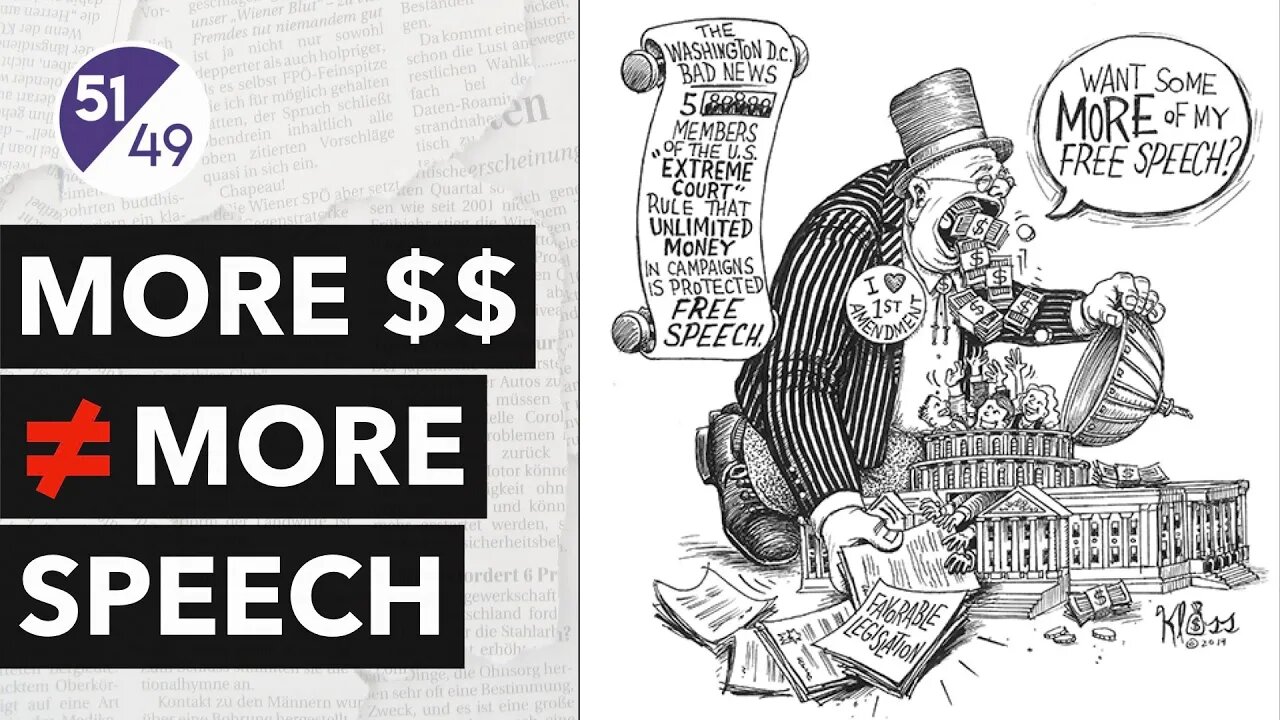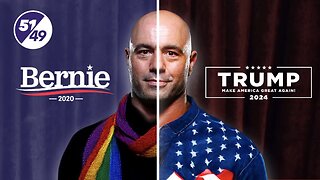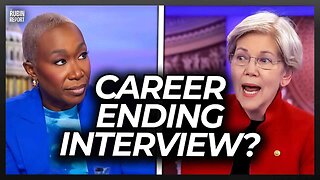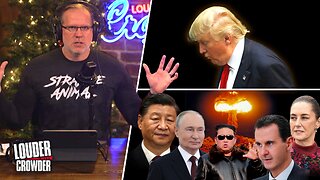Premium Only Content

More Money Should Not Equal More Speech
Groups like the Federalist Society claim that while money isn’t technically speech, it does enable speech, so restricting spending of money for speech disables speech, paving the way for the landmark Citizen’s United vs. FEC case in 2010 whereby the Supreme Court ruled that corporations could spend unlimited sums of money on political campaigns.
In this week's 51/49 segment, James examines the corruptive influence money has on politics a decade after the historic Citizen's United ruling, and answers the question: if it costs money to engage in free speech, is speech really free?
According to OpenSecrets.com, we are in the midst of the most expensive election cycle in history, almost 11 billion dollars spent in 2020 compared with about half that amount in 2016, with about 3/4 of that coming from large individual donors, PACs or dark money sources.
In California, companies like Uber and Lyft are spending over $180 million to pass Proposition 22, which would define app-based transportation and delivery drivers as independent contractors. (51/49 segment about Proposition 22: https://youtu.be/8JkTgX3ri_Q)
So in reality, if the amount of speech is tied to the amount of money, one has access to, people with more money are then going to be the only ones who are heard and the ones who end up getting to decide everything.
0:00 Introduction
0:35 Is Money Speech?
2:13 The Relationship Between Money and Corruption in Politics
3:58 Examples of Money's Corruptive Influence on Politics
6:17 Democrats and Republicans are Equally Corrupt
51/49 with James Li - Commentary on business, politics, and the other things (from an independent perspective)
Follow James on Twitter: https://twitter.com/jamesccli/
-----
Fair Use Notice: This video may contain copyrighted material; the use of which has not been specifically authorized by the copyright owner. We are making such material available for the purposes of criticism, comment, review and news reporting which constitute the fair use of any such copyrighted material as provided for in section 107 of the US Copyright Law. Not withstanding the provisions of sections 106 and 106A, the fair use of a copyrighted work for purposes such as criticism, comment, review and news reporting is not an infringement of copyright.
-
 15:08
15:08
51-49 with James Li
11 days ago $0.42 earnedWhy Joe Rogan Ditched the Left – And What It Means for America
2415 -
 UPCOMING
UPCOMING
tacetmort3m
12 hours ago🔴 LIVE - THIS GAME IS ABSOLUTE CINEMA - INDIANA JONES AND THE GREAT CIRCLE - PART 3
34 -
 1:58:49
1:58:49
The Charlie Kirk Show
3 hours agoThe New Jersey Drone Mystery + "Only" 26 J6 Informants + Pop Culture Power Hour | Kelly | 12.13.24
97.8K51 -
 29:49
29:49
Brewzle
2 hours agoThis Distiller Is The Mad Scientist Of Corn
6.15K3 -
 17:53
17:53
Misha Petrov
15 hours agoWoman Sleeps with 100 Men in One Day, Plans 1,000 Next?! The Sad Reality of OF Culture
36.2K70 -
 49:45
49:45
The Dan Bongino Show
5 hours agoBONGINO REACTS: Best Clips Of 2024 - 12/13/24
473K914 -
 LIVE
LIVE
The Dana Show with Dana Loesch
2 hours agoNO ANSWERS FOR MYSTERY DRONES | The Dana Show LIVE On Rumble!
691 watching -
 1:00:30
1:00:30
Dr. Eric Berg
4 days agoThe Dr. Berg Show LIVE December 13, 2024
50K16 -
 1:04:17
1:04:17
The Rubin Report
4 hours agoElizabeth Warren Gives Excuses for CEO Murder in Interview That Could Destroy Her Career
77.6K68 -
 55:38
55:38
Steven Crowder
4 hours ago🔴 Donald Trump is About to Inherit a World on The Brink | What Happens Next
182K190